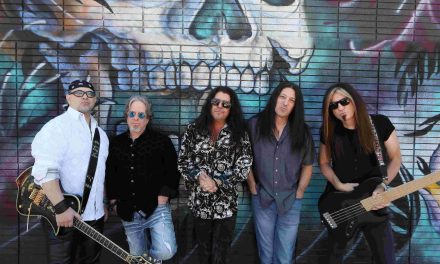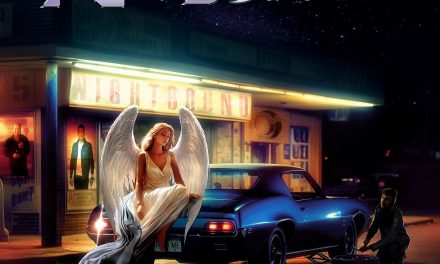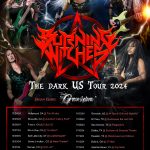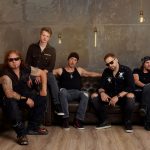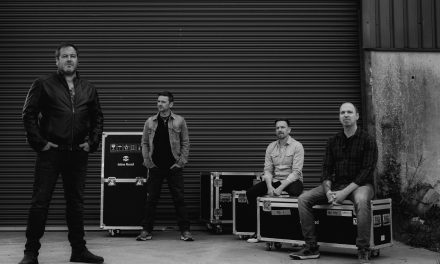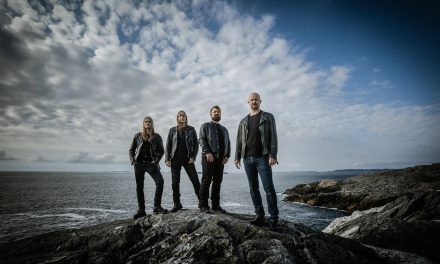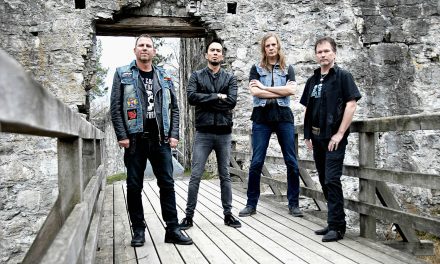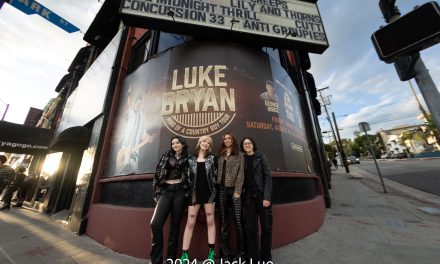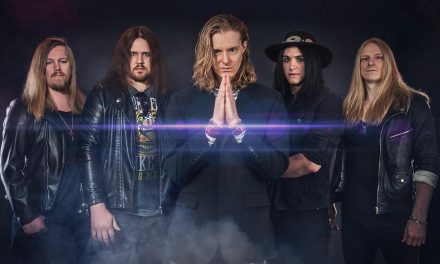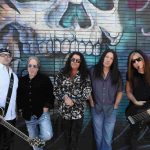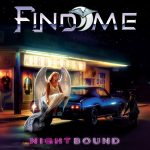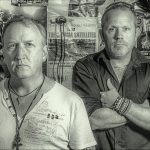
Martin Barre presents A Brief History of Tull
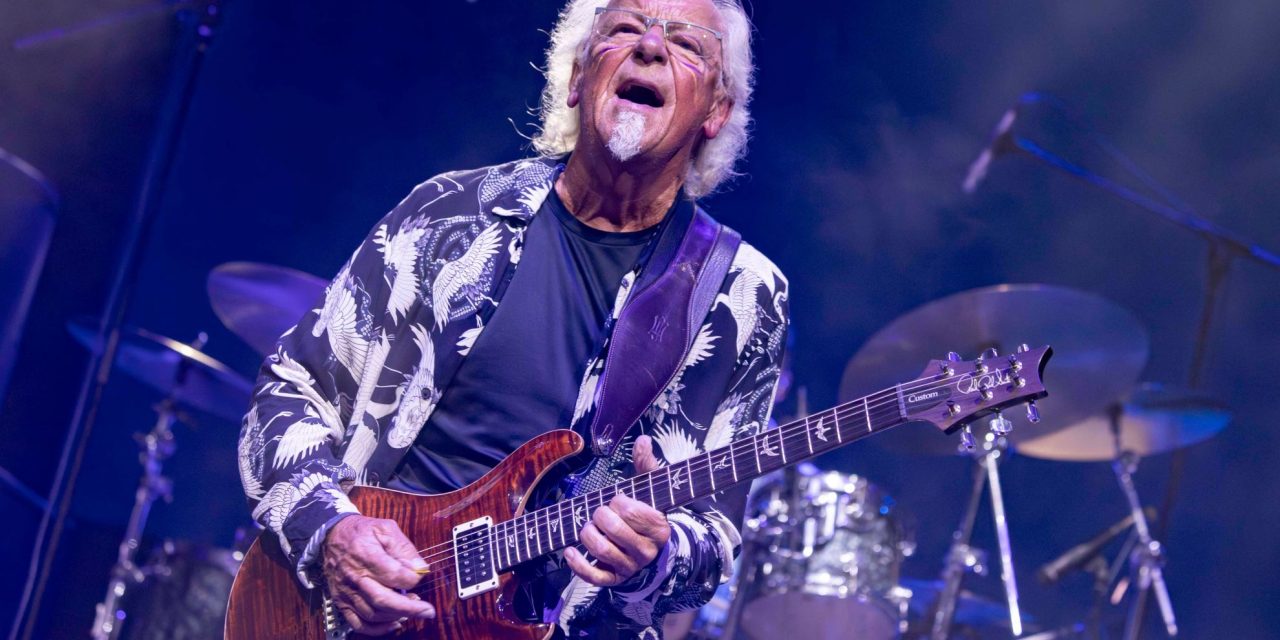
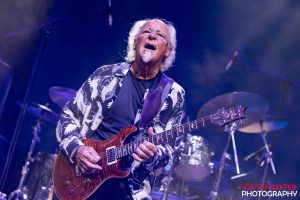 Martin Barre presents A Brief History of Tull
Martin Barre presents A Brief History of Tull
Martin Barre is the legendary former guitarist of Jethro Tull, whose contribution to the band’s legacy and distinct sound are absolutely massive! In addition to his time spent within the ranks of Tull, Martin Barre has also experienced a brilliant solo career as well as worked with the likes of Paul McCartney! On March 22, Martin Barre and his band will present A Brief History of Tull at the La Mirada Theater! It was an honor to interview Martin Barre via the magic of Zoom to discuss an absolutely amazing career in music! Read on…
We’re here with Martin Barre, formerly of Jethro Tull. First of all, let’s talk about the show you’re going to be doing in La Mirada on March 22nd. What could one expect from this particular show?
It’s a fabulous show. This is my ultimate take on several projects that have led up to this. I did the 50-year anniversary. I did the Aqualung tour, and this is sort of bringing everything to a nice finish where in many ways, it’s my history of Tull – because it’s the history of Tull from my point of view and my choices. So, it’s not going to be the song selection that is obvious and the same stuff that people have heard before. It’s very fresh, very new, very dynamic. There are lots of changes. Acoustic, instrumental, a lot of textures, keyboards, flutes, acoustic guitars, electric guitars. It’s a big show and still the four-piece band. But I think people would be quite amazed at what we do with four people to put the show together. It’s an exciting show, and it has a bit of everything from over the years.
How did you wind up joining Jethro Tull for their second album, Stand Up, in 1969, and what do you think of that particular album in retrospect?
Well, I think in many ways, it’s Tull’s first album because it was the sort of a jumping-off point for the band called Jethro Tull where everybody wrote and arranged and performed as a four-piece band projecting into the next few years. So it was sort of a very important historical event. Particularly in the States, because we hadn’t played there before. Stand Up marked the beginning of where the music was going to go for the next 30-40 years.
The song Living in the Past, I think was done around or before the time you joined… I’m not 100% sure if you were on that song, but I know that you’ve played that song a zillion times live. What do you think of that song now in retrospect?
Well, I’m on everything. The only thing I’m not on was the very first album. What do I think of it? It’s a pop song. And it’s a good pop song. We used to play it here and there, over the years. I wouldn’t say it was a number that really brought the house down. And I tried it with my band, and it didn’t really have the pizzazz that I need to qualify for being an asset. So, it’s a bit light. But it did the job. It was a single and it was successful, and it brought the band to the attention of people who then hopefully go and buy an album on the basis of hearing that.
Celebrating the 50th anniversary, released in 1974, is War Child. When you look back on that album, what do you think of it now in retrospect? And of course, the infamous Bungle in the Jungle was on that album.
It was the first album we recorded back in the UK after living in France for a couple of years. A lot of the English bands lived abroad because of the punitive tax laws in England. And we’d recorded quite a few albums outside of the country, but then the government changed, there were a lot fairer tax laws, and most of the musicians moved back to England, thankfully. And that was the first album we recorded back home, and it was a strong album back in the studio where we recorded Thick as a Brick and Stand Up and Benefit. It was all very familiar ground. It was like it was a real homecoming. It had a good vibe to it. You could tell that we had fun making that album.
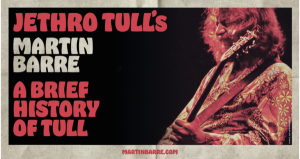
Oh, I love it. I might play it at La Mirada. I might not, but there’s nothing wrong with it at all. And if the audience joins in and sings, it’s even better.
We’re going back to 1984 now and talk about the 40th anniversary of an album called Under Wraps. When you look at that one, what do you think of it now in retrospect going 40 years back?
We see that a lot of these albums are represented in my show, so that would sort of answer your question, but we play two tracks from that album and it’s the acoustic and electric versions of the title track Under Wraps and they’re great. Dan sings amazingly. It’s a beautiful acoustic song. Lots of subtlety. And then we go straight into the electric version, which is a rock and roll track and it steams along and it’s brilliant.
Let’s go back to 1994 and I believe this is either your first or second solo album, A Trick of Memory. When you look back on that and the fact that you were now doing a solo album, what do you think of that now?
It represents what I was doing way back then. And I can listen to it, and I enjoy it because I can see how it all formulated, but I can see where it has its weaknesses. But I think in the early days of my songwriting, I was a good instrumental writer, but when it came to songs, I was learning. And yeah, it was part of the learning process. I’m proud of all of it. I live and stand by all of those tracks, and in the essence of it being part of my history, then I wouldn’t change a thing. But I hope the next album picks up on the things that I thought could be better. And hopefully, that happens throughout all my solo albums.
What was it like winning the Grammy for 1987’s Crest Of The Knave? The Grammys were just on the other night…
Well, we watch them, or we try to watch them. Yeah, it’s become a different entity, hasn’t it? I would love to be at a Grammy ceremony now, and I would love to win a Grammy in 2024 because it’s become so publicized. It’s a big deal. And back when we went out, it was a sort of a bit of a novelty within the music industry. So it didn’t pick up on it like it does now. So I think the Grammys and the Oscars and the Emmys and the Tonys that these are all big, big events, really important in the world, in the art world. It’s a shame we were in an era where it didn’t have an impact. However, I have a Grammy and it won’t be going anywhere. It’s on my shelf and it’s brilliant.
What was it like working with Paul McCartney? A lot of people see him as a legend. How did you see him when you were working with him?
A legend. I was in awe of him. He and the three Beatles were my heroes when I was a teenager and starting to play guitar and be in a band. So, everybody looked up to them as being just superstars from the word go. Larger than life people. And yeah, I think I’ve met John Lennon on a TV show. George Harrison, I’ve met because he lived near where we lived in England. But then Paul McCartney, I hadn’t met. I worked and recorded with him. It was amazing. I’m so lucky that I did it and I don’t even have a photo of it. I wish I had a photo. It’d be right on my office desk. Yeah, it was a fantastic week. And he was amazing. He’s larger than life. And then when he sang, it was magic and he sang all the time, playing and hammering away on the piano. And he was brilliant. Absolutely brilliant.
Do you have any messages for your fans who are reading this right now and who are looking forward to the show in La Mirada?
It was such an amazing show last time and the audience was amazing, so it was humbling. And I don’t use that word in a pretentious way. I really felt humbled. And we haven’t played in LA for a long, long time. So, I just hope that happens again. And I’m super respectful of LA, the audience, and the fans in LA. The things we’ve done there in the past have been really amazing. I’ve played great music in California. I’ve listened to great music in California. I’ve had wonderful times there working and playing and being on holiday. Everything is so positive about being there. And yeah, we’re going to make sure we do a great gig.
That’s going to be exciting. I haven’t seen anything involving Jethro Tull since the Roots to Branches tour – the first and only time I saw Tull live. That’s a horrible thing to confess, but it’s true.
No, it’s understandable. But I always like to think that if a couple of people are in town and they walk past the theater and they look up and see us playing – they have no idea who I am or what the music is – and they’ve got nothing else to do, they buy a couple of tickets. And at the end of the night, they’re really happy. And that is where you convert people. It’s never too late to enjoy Tull’s music. And essentially, I’m entertaining people. At the end of the night, I want people to be excited, happy, and jumping around.
(Interview and Photo by Jack Lue)
Martin Barre Official Home Page
Martin Barre at the La Mirada Theater – Tickets Here

